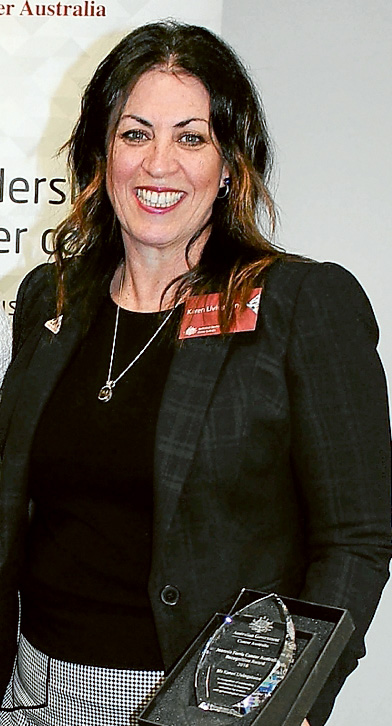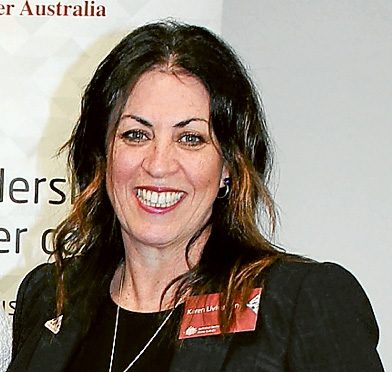
OVARIAN and gynaecological cancers can be tough to talk about and tackle but Karen Livingstone hopes more lives can be saved by bringing the subject out into the open.
The 50-year-old Mentone resident is the CEO of Ovarian Cancer Australia, a cancer charity focused on raising awareness of gynaecological cancers and funding medical research, and co-founded the organisation with sister Nicole Livingstone, the former Olympics swimmer and now TV and radio sports presenter.
Karen’s leadership in improving outcomes for women diagnosed with gynaecological cancers was recognised this month with the award of this year’s Jeannie Ferris Cancer Australia Recognition Award.
The award is named in honour of the late Jeannie Ferris, Senator for South Australia, who was committed to raising awareness about gynaecological cancers. Senator Ferris was diagnosed with ovarian cancer in October 2005 and passed away in April 2007.
The Livingstone sisters know the pain losing loved ones to cancer causes. Their mother, Elsie, died in 2001 of ovarian cancer. Karen’s husband, Dave Grant, died of pancreatic cancer when aged 52 in 2010.
“What I’ve tried to do is create better information for people who are undertaking the journey,” Karen said.
“Survival rates need to be improved and that’s why I’m interested in research and sit on the board of the Australian New Zealand Gynaecological Oncology Group which is about improving clinical outcome for patients who are undertaking chemotherapy.”
Taking advantage of improving technologies is important to increase gynaecological cancer survival rates.
Early symptoms can be difficult to notice for many women.
“Each cancer has a different signal and signal. Ovarian cancer signs can include feeling bloated in the abdomen, feeling full and unable to eat or frequent urination,” she said.
“Women being busy as they are and being the centre of mothering in the family they usually put themselves last on the agenda … but it is important they get checked out.”
Karen and Nicole have both been diagnosed with a gene making them more susceptible to ovarian cancer so they will have their fallopian tubes and ovaries removed when they enter menopause amid increased surveillance in the meantime.
“My mother asked for some blood to be put away, that blood was tested and they did find there was a gene in the blood.
“Familial cancers can be an indication to seek early diagnosis.”
See Ovarian Cancer Australia’s website at ovariancancer.net.au for further information about possible symptoms.
Details of ANZGOG’s ‘Save the box’ campaign, aimed at raising funds for medical research, can be accessed at savethebox.org.au online.
First published in the Chelsea Mordialloc Mentone News – 10 August 2016

